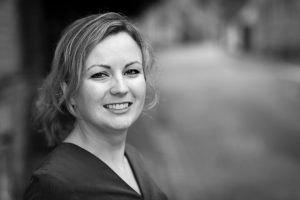Podcast: Play in new window | Download
Nancy Bocken co-founded the company HOMIE, which is developing circular services for pay-per-use home appliances, starting with washing machines. Nancy has an academic background, and she is professor and research coordinator in Sustainable Business Management and Practice at Lund University in Sweden.
We talk about how Homie got started, and how the service works. Nancy tells about some of the challenges they faced, and the benefits of pay-per-use for customers, the business, and our environment.
Nancy gives us some great tips for those of you thinking about circular projects or startups, and we hear how Homie has built relationships with its customers so that a lot of the marketing is by word-of-mouth.
Podcast host Catherine Weetman helps businesses use circular, regenerative and fair solutions to do better, with less.
Stay in touch for free insights and updates…
Read on for more on our guest and links to the people, organisations and other resources we mention.
Links we mention in the episode:
- Nancy Bocken on LinkedIn https://www.linkedin.com/in/nancy-bocken-b7384614/
- homiepayperuse.com (Homie official website)
- @homiepayperuse (Homie on Twitter)
- Link to article on the environmental impact associated with the HOMIE model: https://www.sciencedirect.com/science/article/pii/S0959652618320109?via%3Dihub
About Nancy
 Nancy Bocken is professor and research coordinator in Sustainable Business Management and Practice at Lund University,The International Institute for Industrial Environmental Economics (IIIEE). She focuses on topics like sustainable business model innovation, sufficiency, and experimentation. Recently, she was awarded the prestigious European Research Council (ERC) research grant of 1.5m EUR to investigate experimentation with circular service business models in a company context, a 5-year research programme, starting in 2020. Next to her main role at Lund University, she is a Fellow at Cambridge Institute for Sustainability Leadership, and Visiting Professor at Lappeenranta University of Technology, Maastricht University, and TU Delft.
Nancy Bocken is professor and research coordinator in Sustainable Business Management and Practice at Lund University,The International Institute for Industrial Environmental Economics (IIIEE). She focuses on topics like sustainable business model innovation, sufficiency, and experimentation. Recently, she was awarded the prestigious European Research Council (ERC) research grant of 1.5m EUR to investigate experimentation with circular service business models in a company context, a 5-year research programme, starting in 2020. Next to her main role at Lund University, she is a Fellow at Cambridge Institute for Sustainability Leadership, and Visiting Professor at Lappeenranta University of Technology, Maastricht University, and TU Delft.
Nancy co-founded the company HOMIE, which is developing circular services for pay-per-use home appliances, starting with washing machines. She is also advisor to organisations like TNO (Dutch organisation for applied sciences) and FSC (Forest Stewardship Council).
If you’re new to the circular economy, you might like the ‘getting started’ playlist. There’s also an interactive podcast index, making it easy to find episodes on each of the key circular economy strategies or for a specific market sector. And to dig deeper, please check out Catherine’s award-winning A Circular Economy Handbook, published by Kogan Page.
Please follow the Circular Economy Podcast and let us know what you think on LinkedIn, and if you love this episode, please leave us a review wherever you listen, or send an email…
